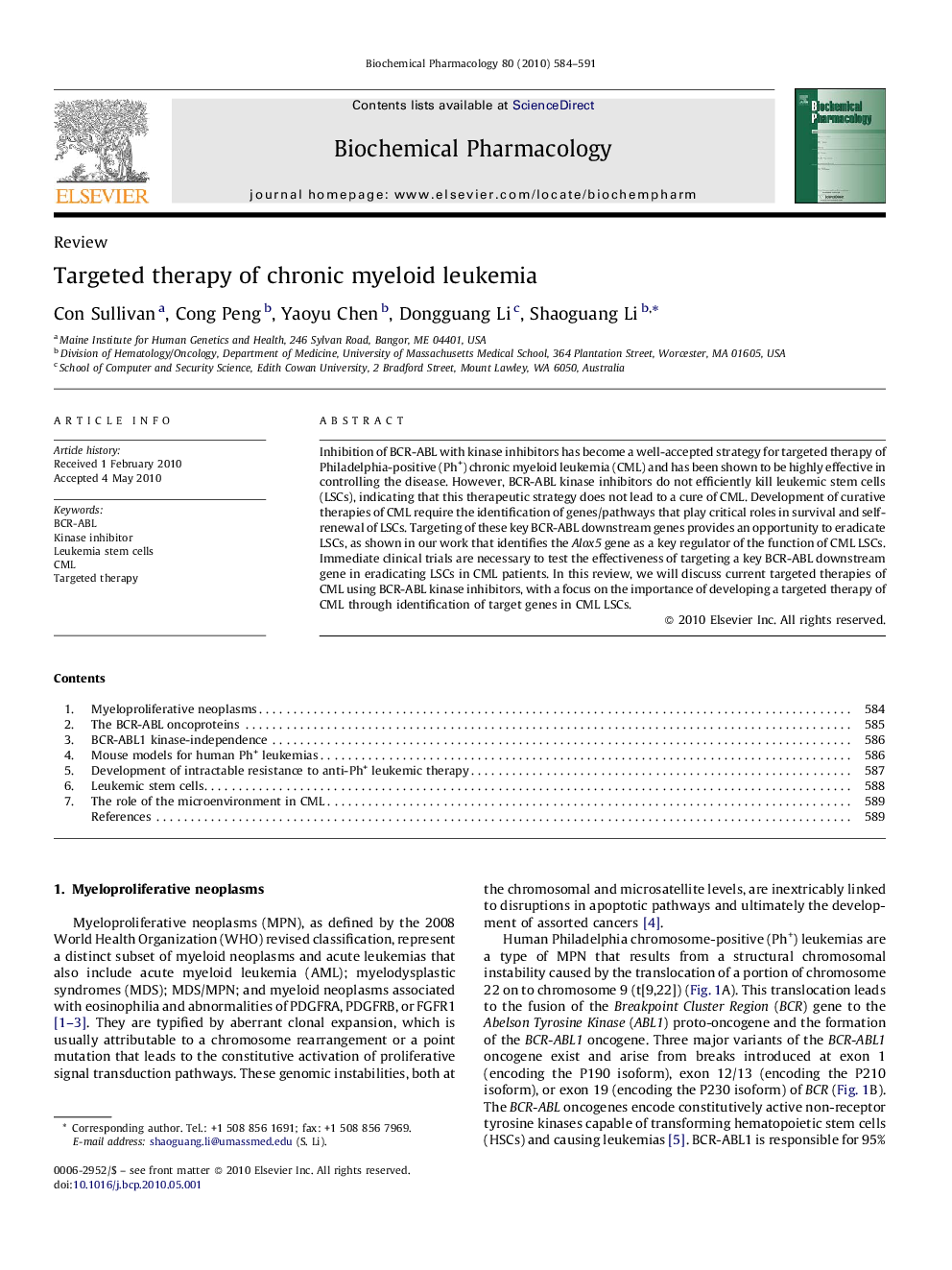| Article ID | Journal | Published Year | Pages | File Type |
|---|---|---|---|---|
| 2513413 | Biochemical Pharmacology | 2010 | 8 Pages |
Abstract
Inhibition of BCR-ABL with kinase inhibitors has become a well-accepted strategy for targeted therapy of Philadelphia-positive (Ph+) chronic myeloid leukemia (CML) and has been shown to be highly effective in controlling the disease. However, BCR-ABL kinase inhibitors do not efficiently kill leukemic stem cells (LSCs), indicating that this therapeutic strategy does not lead to a cure of CML. Development of curative therapies of CML require the identification of genes/pathways that play critical roles in survival and self-renewal of LSCs. Targeting of these key BCR-ABL downstream genes provides an opportunity to eradicate LSCs, as shown in our work that identifies the Alox5 gene as a key regulator of the function of CML LSCs. Immediate clinical trials are necessary to test the effectiveness of targeting a key BCR-ABL downstream gene in eradicating LSCs in CML patients. In this review, we will discuss current targeted therapies of CML using BCR-ABL kinase inhibitors, with a focus on the importance of developing a targeted therapy of CML through identification of target genes in CML LSCs.
Related Topics
Health Sciences
Pharmacology, Toxicology and Pharmaceutical Science
Pharmacology
Authors
Con Sullivan, Cong Peng, Yaoyu Chen, Dongguang Li, Shaoguang Li,
